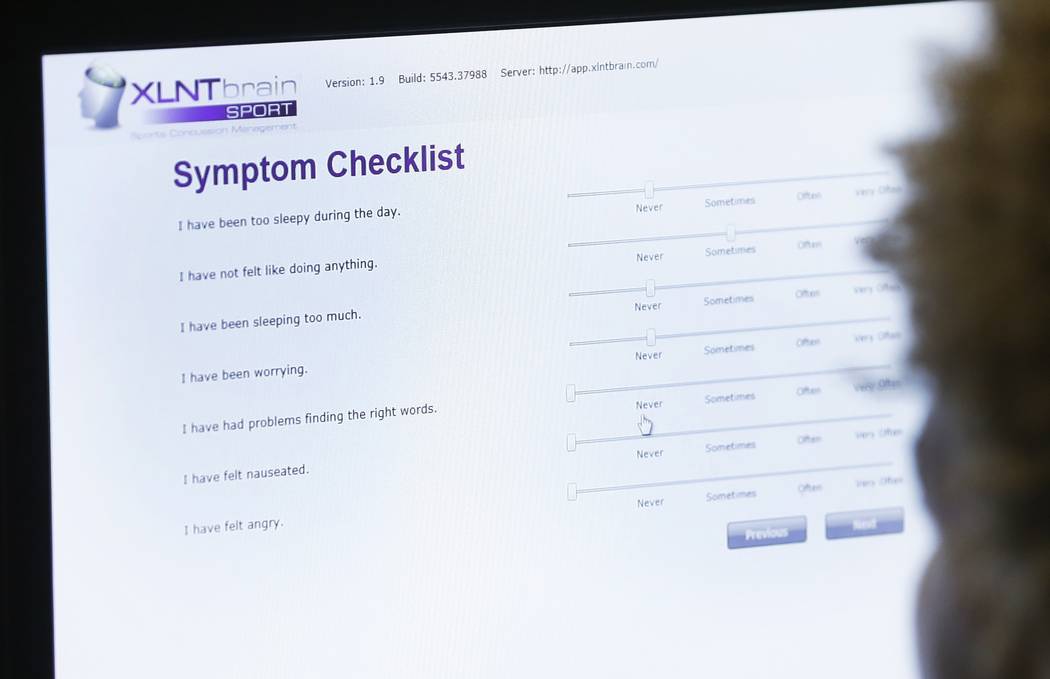CCSD using cognitive testing in concussion managment protocols

James Porter, an athletic trainer for more than 40 years, has worked with CCSD since 1998. He has seen how the science around concussions and their effects has evolved from when he first started, as different as night and day.
“When we started the (AT) program here if you suffered a concussion, and I did a sideline evaluation and you didn’t have any symptoms you reported to me, I could put you back in play,” he said. “Now that would never happen.”
These days, CCSD is focused on diagnosing and treating concussions that the players may sustain. As school starts the district has again begun its baseline testing program to evaluate concussions and subsequent treatment.
Concussions is a brain injury that occurs when a sudden force or shift in momentum causes the brain to bounce against the inside of the skull. Football is known as one of the main sports culprits for this kind of injury, but it could happen in any sport where contact, collisions and falls are inevitable.
Since 2004, CCSD has instituted an evaluation system for treating concussions based on clearing for the classroom before they step back on the field.
One of the key components of the concussion evaluation system is the ImPACT test. ImPACT is a cognitive test which, according to the ImPACT Applications website, is used by over 7,400 high schools and more than 1,000 colleges.
The test is an online tool which measures functions of the frontal and parietal lobes of the brain, which are responsible for body movement, problem solving, judgment, the senses, and spatial awareness. Porter emphasized that it is only one part of the overall program, but it serves a vital purpose.
“It is the ‘return-to-learn’ component,” Porter said. “It’s a cognitive test to determine when the athlete is ready to go back to school. A lot of people think the ImPACT program is a return to play component. It is not.”
Students must first pass the ImPACT test before they can go onto balance tests or physical stress tests, which Porter referred to as “return-to-play” components, to make sure all parts of the sudent’s brain are functioning properly.
Dr. Adam Briener, the medical director of The NeuroEdge Brain Performance Center in Fairfield, Connecticut, believes that parents who are thinking about signing their children up for sports should take some form of a cognitive test before the season starts in order to have a baseline for their child’s normal cognitive levels.
“It’s a good measure to kind of see that the kid has a change in their cognitive performance,” he said.
Porter said that the database linked to the ImPACT test is vast, so an athlete does not necessarily need a prior baseline test in order to get solid results.
While Porter stressed that ImPACT is not the only test which is used, it has become a very effective tool in the treatment and management of concussions. And all of them come with he idea of helping the student-athlete function at their best on and off the field.
“We’re using a number of tests, as well as extertional components and direct observation to determine when we send an athlete back they are as normal as they possibly can be,” he said.
Contact Jonathan Saxon at jsaxon@reviewjournal.com. Follow @J_Saxon91 on Twitter.












